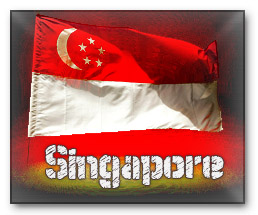Tomorrow becomes yesterday in the Pacific
 Singapore, Dec 30 - Is it Dec 31 or Jan 1, still yesterday or already today? Things get complicated at the International Date Line in the Pacific Ocean.
Singapore, Dec 30 - Is it Dec 31 or Jan 1, still yesterday or already today? Things get complicated at the International Date Line in the Pacific Ocean.
When people on the South Sea island of Samoa pop the champagne corks to celebrate the New Year, the year is already 24 hours old on Tonga, a few islands further west.
The two islands are separated by 900 km. They have the same time, but different dates. This means that when it's Friday on Tonga it is still yesterday, Thursday, on Samoa.
Samoans, on the other hand, can Friday phone their friends on Tonga tomorrow, Saturday, because it is always a day later there. Confused?
Well, it works like this: The worldwide standard time is calculated from the Greenwich meridian near London. Towards the west, time is behind, towards the east, ahead.
At 11 a. m. on New Year's Eve in London, if one moves east, it is noon in Berlin, 7 p. m. in Singapore, and midnight on Tonga.
Moving west, it is only 10 a. m. on the Azores, 6 a. m. in New York and 3 a. m. on the US west coast. On Samoa the day just starts: it is 00:00. The International Date Line separates Tonga and Samoa.
"You can easily celebrate your birthday twice," said German national Ronald Kubik, who lived on Tonga for years and is now a Samoa resident.
He has crossed that imaginary line hundreds of times, sometimes very consciously. "In 1978, for my 50th birthday and in 1988 for my 60th I flew from Tonga to Samoa and celebrated twice," he said.
But of course, those not in the mood for a party, can take advantage of the situation too. If someone packs their bags really early on Samoa and gets on the one-hour flight to Tonga he arrives when the dreaded date has passed.
The issue of the lost day greatly scared the crew of the world's first man to circumnavigate the globe, Ferdinand Magellan, who had departed from Seville, Spain, westwards in 1519.
The survivors of the expedition had kept detailed logs and feared for their eternal salvation when they discovered upon their return in 1522 that they had lost a whole day.
Jules Verne's Phileas Fogg, on the other hand, was highly upbeat when realised he had not lost his race in Around the World in Eighty Days, but gained one day by starting out towards the east.
Anyone vacationing near the Date Line has to be doubly careful, for example when booking flights and hotels. Holidaymakers flying Dec 30 from Tonga to Samoa need to book a room at their Samoa hotel for the 29th. And those flying in the other direction must book their room on Tonga for Dec 31.
Locals are well used to the issues arising from the date difference. "There is sometimes confusion when we phone relatives in New Zealand," said Samoa's Deputy Prime Minister Misa Telefoni. In order to get their New Year wishes to New Zealand on time, Samoans have to pick up the phone on the morning of Dec 31.
The dividing line between today, tomorrow and yesterday is more or less the 180th line of longitude. Up north, it bulges towards the east to prevent a part of Siberia lagging behind the rest of Russia, and a bit further south it moves westwards to make sure that the US Aleutian islands near Alaska are not one day ahead of the mother country.
And then there is Kiribati. Until 1995 the Date Line went smack through the middle of the Pacific kingdom, whose islands are spread out over 5,000 km in an east-west arc.
The government decided then to align themselves fully to the west. Therefore the island of Kiritimati may be east of the Date Line, but time-wise it belongs to the Western Hemisphere and is 14 hours ahead of Greenwich.
Its neighbours suspected that Kiribati made the switch only to be the first nation to welcome the new millennium.
And Kiribati also makes it possible that the world is running on three different dates some time every day. On Dec 31, just after 10 a. m. in Britain, it is just after midnight, and therefore Jan 1 on Kiritimati, while on Samoa it is still 11 p. m. Dec 30. (IANS)